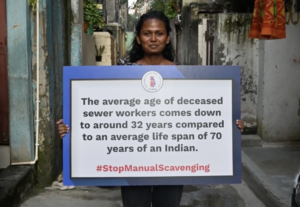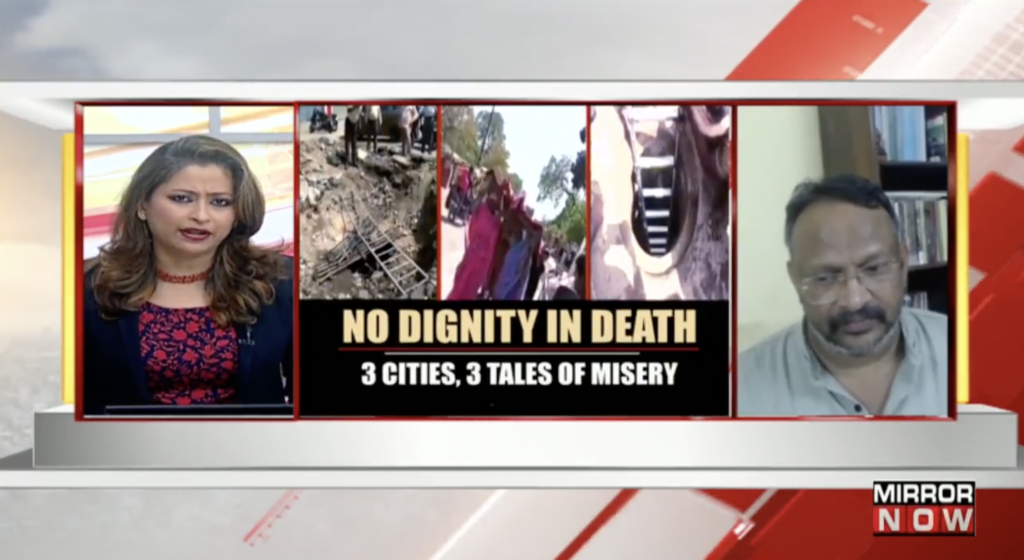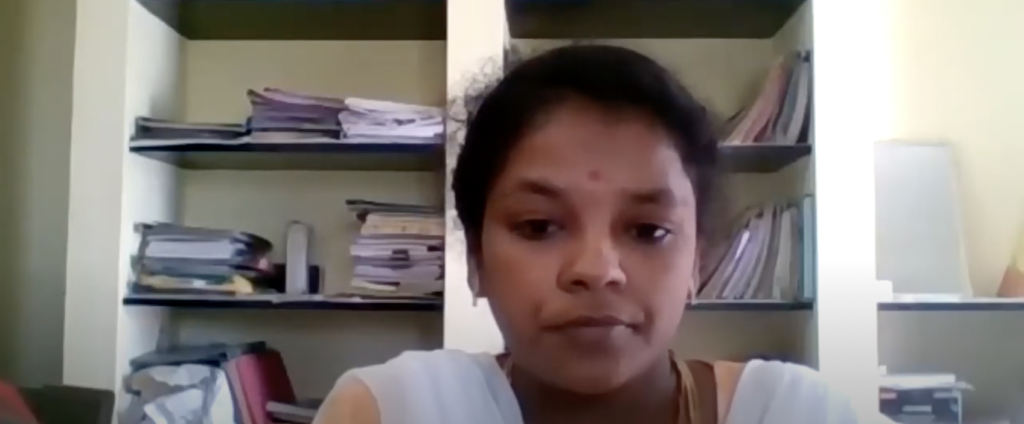Side event at the UN ESCAP Asia Pacific Forum, this webinar focused on the issue of persistent caste-based discrimination which eventually increases the vulnerability of Communities Discriminated by Work and Descent (CDWD, also commonly referred to as caste) to modern slavery and slavery-like practices.
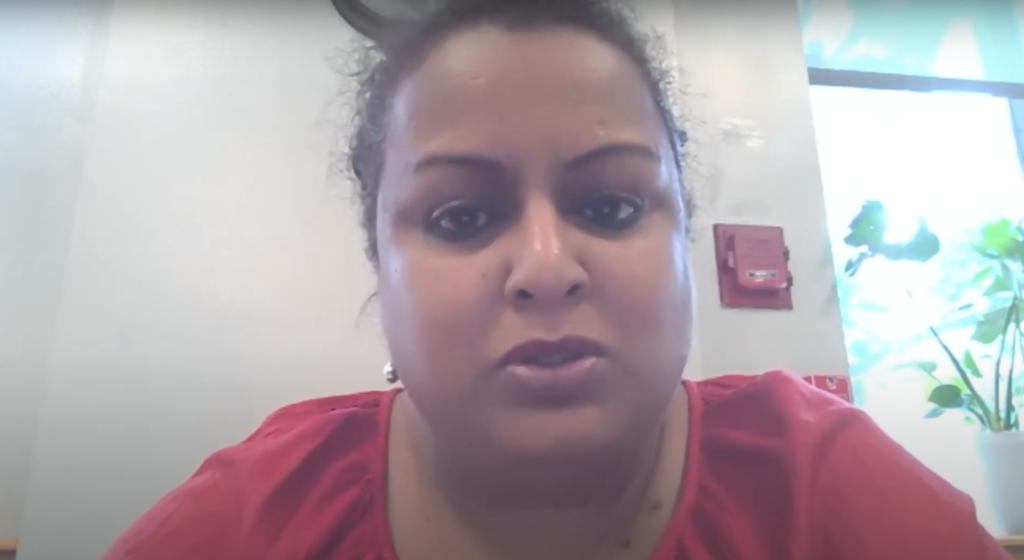
Side event to the UN High-Level Political Forum on Sustainable Development, the webinar was organised by the Global Forum of Communities Discriminated on Work and Descent (GFoD) and Global Call to Action Against Poverty (GCAP). The event focused on the discussion on “Building forward better” around four interlinked themes – vaccines, hunger, debt and social protection, and livelihood while discussing it in context of the achievement of the SDGs, especially SDG 5 using the gender lens.
Watch the video
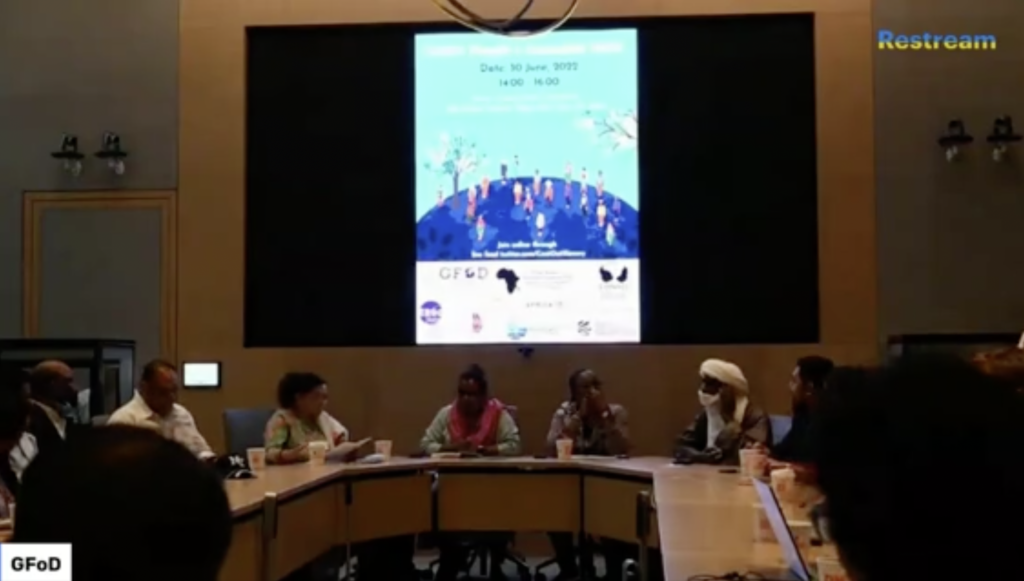
Side event to the UN High-Level Political Forum on Sustainable Development (UN HLPF), this Communities Discriminated on Work & Descent (CDWD) People’s Assembly was facilitated by the Global Forum of Communities Discriminated on Work and Descent, with NCDHR’s leadership.
Participants discussed achievements and obstacles regarding the rights of communities discriminated by work and descent. The forum brought together 39 CDWD rights experts, activists, and other country representatives, and had four aims:
1) to recognise the numerical strength and geographical spread of CDWD communities and the gravity of the discrimination they face;
2) to assess the level of response from individual and collective States Parties in eradicating such discrimination and violence;
3) to explore how the CDWD communities can be formally brought within the ambit of the UN Charter Bodies; and
4) to explore ways and means of generating support from the Foreign Missions
Watch the video of the meeting
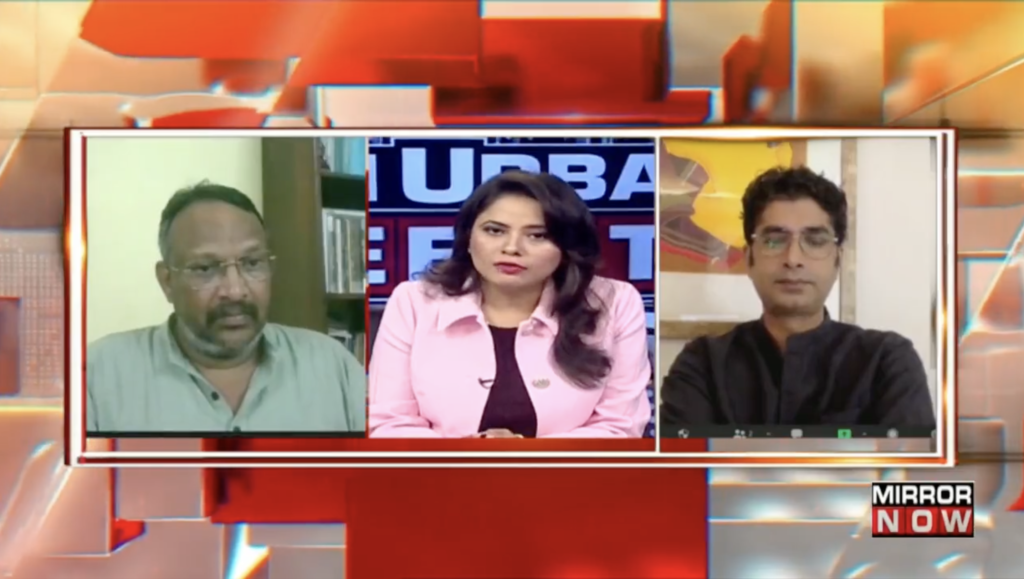
On 30 March 2022, Safai Karmachari Andolan’s director Bezwada Wilson was interviewed by the Indian TV channel Mirror Now.
“People feel bad for few minutes and later everybody forgets and move on. We shouldn’t keep quite anymore.”
(Click here to watch the video)
“We have no idea whether to collect, manage or dispose the garbage. We are throwing sewage water everyday in Yamuna, without even treating it.”
(Click here to watch the video)
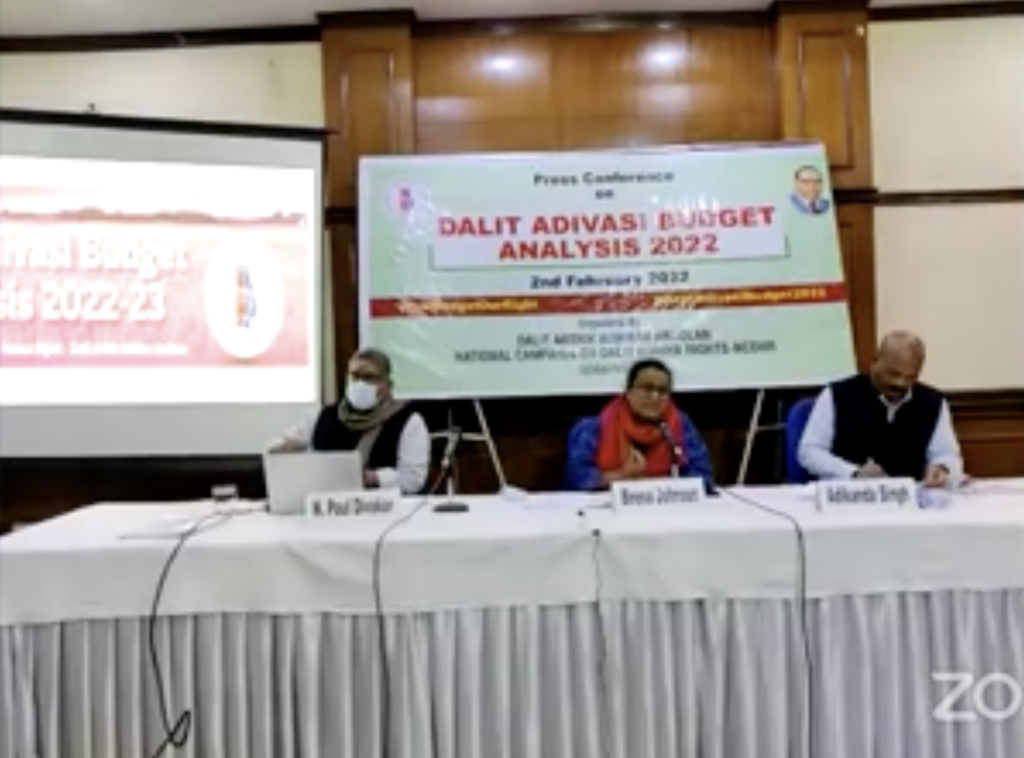

On 2 February 2022, NCDHR held a press conference in Delhi to share its analysis on the Union Budget for 2022-23, from the perspective of Dalit and Adivasis – with a particular emphasis on women from these communities.
The conference highlighted the need for economic recovery resulting from the unprecedented pandemic situation, with its particularly harsh impact on marginalised communities.
The panellists emphasised on denial of the budgetary rights of the Dalits and Adivasis and stressed the need to have appropriate allocation for the development of the Dalit and Adivasi communities. The press conference placed a special focus on Dalit women, and particularly sanitation and frontline workers, including gender budget allocations for Dalit and Adivasi women allocations for areas such as higher education and prevention of violence. Subsequently, press conferences were organised across 10 states, and the analysis was widely covered in press reports both at the national and state level in Hindi, English and regional languages (read articles here and here.)
The year 2021 has been a challenging year where hundreds of citizens lost their lives while the country’s health care system succumbed to Covid-19’s second wave. India was gasping for oxygen amidst an out of control unavailability and a crisis of health care facilities. Patients died outside hospitals waiting for beds if at all they had the opportunity to reach there before they lost their battles to Covid-19. However, amidst the global pandemic, while even the most socio-economically privileged section was struggling, how did Dalits and Adivasis manage to support their livelihood and survival?
In Dalit and Adivasi households, especially in villages, the infrastructure required for proper isolation is a luxury. In several states, the isolation camps set up by the government were made inaccessible to Dalits and Adivasis as the dominant castes did not want to share a common space with them, highlighting the broadened caste divide. The hospital bed charges were record high and the poor marginalised communities could not even imagine getting one. Even having access to sanitiser and masks was a distant reality. This is one of the countless forms of discrimination faced by marginalised communities during the pandemic. The crematorium workers, sanitation workers and frontline workers worked ten times more and still were thrown pennies at.
Against this background, the Finance Minister presented the Union Budget 2022 which was expected to take some of these concerns on hand, but it was rather a lack lustre budget. The total allocation for SCs under the Allocation of the Welfare of the SCs (AWSC) is Rs. 1,42,342 Crs and for STs under the Allocation of the Welfare of the STs (AWST) is Rs. 89,265 Crs. The budget revealed the deficiencies in their policies and lack of political commitment to uplift the Dalit and Adivasi communities. When one looks at the quantum and quality of schemes, there is not a single innovative scheme to address the pandemic and the impact of this on the communities.
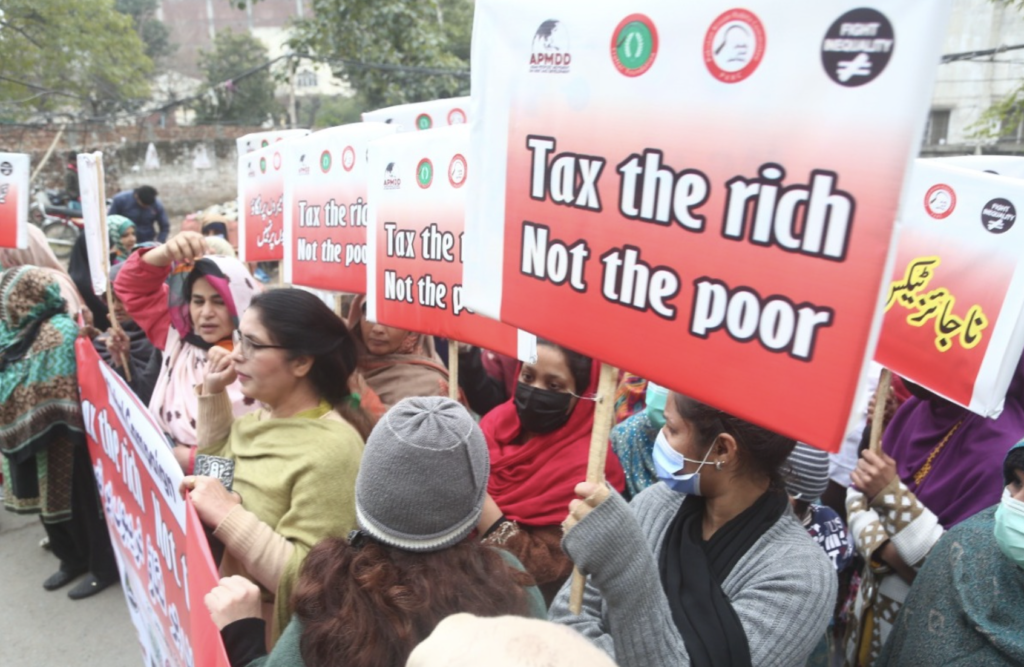
On 15-22 January 2022, APMDD and its members participated in the Global Protest to Fight Inequality (initiated by the Fight Inequality Alliance). This included activities in Indonesia, India, Bangladesh, Pakistan and the Philippines, around the theme “It’s Time to Tax the Rich”.
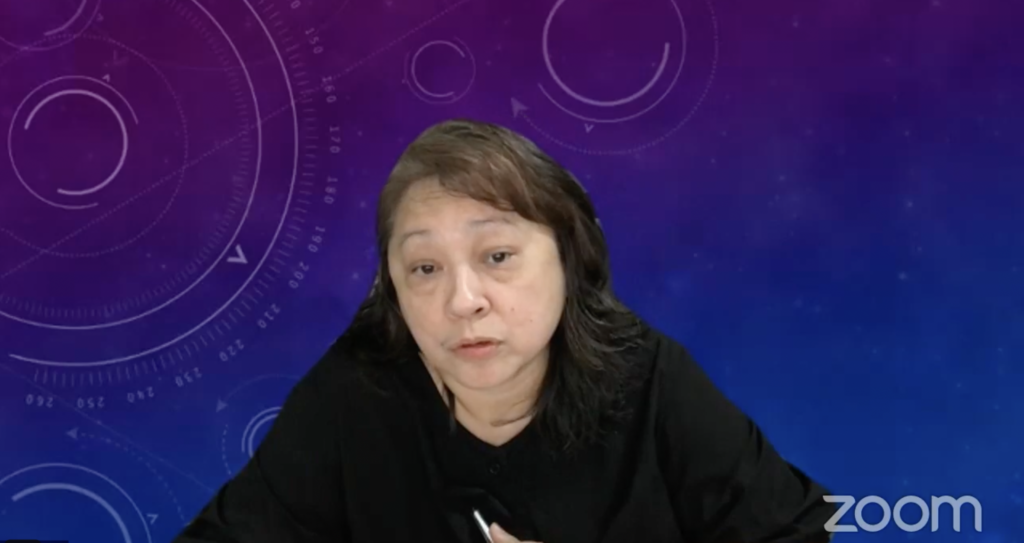
Actions ranged from protests by workers and union leaders in the Philippines and dances to the tune of “We Will Tax You” (see Facebook Live stream above), a children’s art exhibit in Pakistan, a human chain in Bangladesh, a package of activities from movie screenings to talk shows, declarations and mural installations in Indonesia, and a discussion forum bringing together around 70 activists, thinkers and leaders in India.
Further details on the actions can be found in this article.
Omprakash Valmiki had written ‘Aesthetics of Dalit Literature’ to answer those upper caste critics who pointed out the lack of craftsmanship in Dalit literature. Among his stories, ‘Amma’, ‘Biram Ki Bahu’, ‘Salaam’, ‘Pachis Chauke Dedh Sau’ etc. are remarkable stories. Apart from being a writer, Omprakash Valmiki was also a playwright and actor and theater director.
Expressing serious concern over the persistence of manual scavenging in 22 states of India, social activist and National Convener of the Safai Karamchari Andolan, Bezwada Wilson said that his mission would not be over until manual scavenging is fully eliminated. Referring to the plight of women who are forced to persist in manual scavenging for earning their daily bread, Wilson, while inaugurating a new centre at RV University, expressed deep pain and declared that he would not rest until last woman who is engaged in cleaning dry toilets is liberated.
Read the full opinion piece (via Edex Live)


